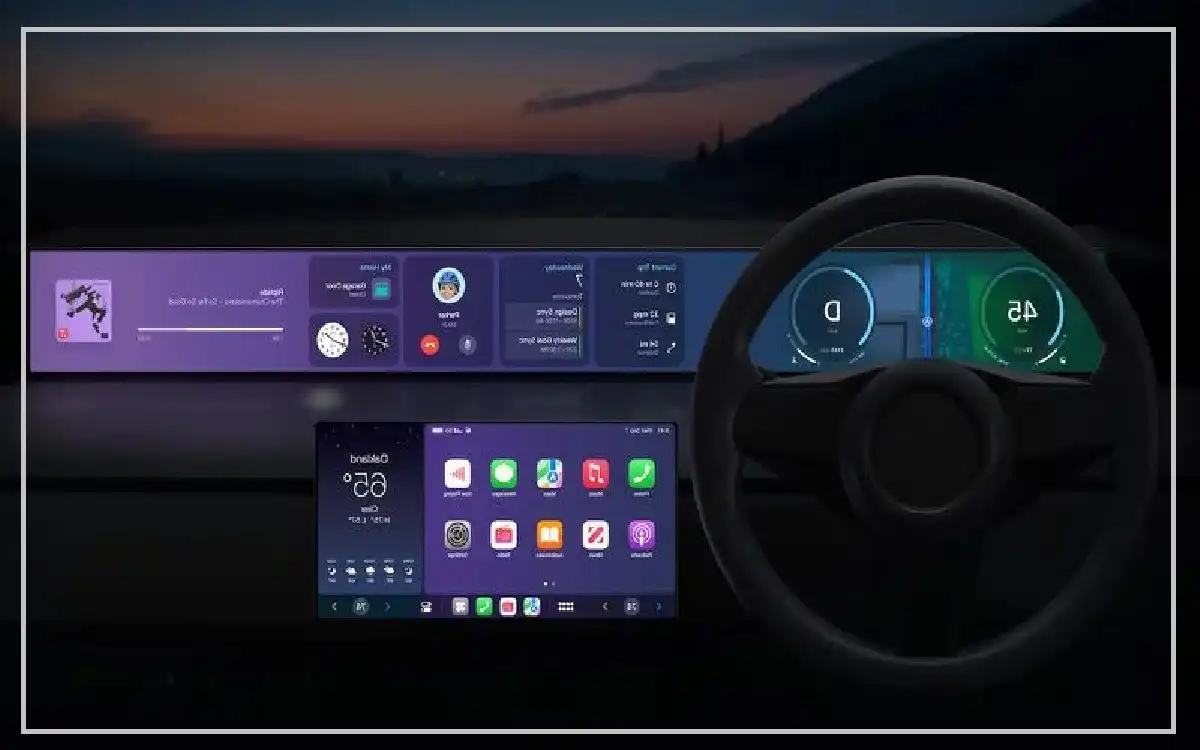Ambitious Apple Next-Generation CarPlay system, bare with much fanfare at WWDC 2022, promised to transform the in-car experience with deeper vehicle integration and multi-screen capabilities. However, as we enter 2025, the anticipated 2024 release has not materialized, leaving both industry experts and consumers questioning the project’s timeline and implementation challenges.
Recent Released: Apple Broke a 13-Year Hardware Streak in 2024
Historical Context and Initial Announcement
The Evolution of CarPlay
CarPlay has been a cornerstone of Apple’s automotive strategy since its introduction in 2014. The platform has develop progress from a simple infotainment interface to become an increasingly sophisticated system, with each iteration bringing new features and capabilities. The current generation of CarPlay, while functional, remains limited to single-screen implementations and basic vehicle integration.
WWDC 2022 Unveiling
The announcement of next-generation CarPlay at WWDC 2022 marked a significant departure from previous versions. Apple presented a vision of comprehensive vehicle integration that would:
- Extend beyond the central infotainment display to utilize multiple screens throughout the vehicle
- Interface directly with vehicle systems and sensors
- Provide customizable digital instrument clusters
- Offer seamless integration with vehicle controls and functions
Technical Specifications and Features
Enhanced Integration Capabilities
The next-generation CarPlay system represents a substantial technical advancement over its predecessor, offering:
Vehicle Systems Integration
- Direct access to vehicle sensors and systems
- Real-time data processing for speed, fuel levels, temperature, and other metrics
- Integration with climate controls and other vehicle settings
- Customizable gauge cluster displays
Multi-Screen Support
- Simultaneous display across multiple screens
- Coordinated content distribution
- Seamless transitions between displays
- Support for various screen sizes and resolutions
User Interface Improvements
- Customizable widgets and layouts
- Enhanced navigation features
- Improved voice control integration
- Personalized driver profiles
Implementation Challenges
Technical Hurdles
The delayed release can be attributed to several technical challenges:
- System Integration Complexity
- Interfacing with proprietary vehicle systems
- Ensuring reliable real-time data communication
- Managing multiple display outputs simultaneously
- Maintaining system stability across various hardware configurations
- Safety and Regulatory Compliance
- Meeting international safety standards
- Ensuring minimal driver distraction
- Complying with regional regulations
- Maintaining failsafe operations
- Hardware Requirements
- Specialized display controllers
- Enhanced processing capabilities
- Multiple high-resolution displays
- Robust network infrastructure
Manufacturer Partnerships
| Manufacturer | Initial Commitment | Current Status | Expected Timeline |
| Porsche | Early Adopter | In Development | Unspecified |
| Aston Martin | 2024 Launch | Delayed | TBD |
| Mercedes | Expressed Interest | Evaluating | No Timeline |
| BMW | Under Discussion | Unknown | Not Announced |
| Volvo | Potential Partner | In Talks | Unspecified |
Market Impact and Industry Response
Consumer Expectations
The delay in releasing Next-Generation CarPlay has created several market implications:
- Growing consumer anticipation for advanced in-car technology
- Potential impact on purchasing decisions for luxury vehicle buyers
- Increased scrutiny of automotive software integration capabilities
- Rising demand for sophisticated digital cockpit experiences
Competitive Landscape
The automotive industry continues to evolve while awaiting Apple’s next-generation CarPlay:
- Android Automotive OS gaining market share
- Manufacturers developing proprietary systems
- Emergence of new automotive software platforms
- Increased focus on connected car technologies
Future Outlook
Short-term Projections
As we progress through 2025, several developments are likely:
- Clearer communication from Apple regarding release timeline
- Initial vehicle announcements from partner manufacturers
- Beta testing and demonstration programs
- Regulatory approvals and certifications
Long-term Implications
The eventual release of next-generation CarPlay will have lasting effects:
- Acceleration of digital cockpit innovation
- Standardization of multi-screen architectures
- Enhanced integration between mobile devices and vehicles
- Evolution of automotive software ecosystems
Industry Expert Perspectives
Leading automotive and technology inquiry suggest various factors contributing to the delay:
- Complex technical integration requirements
- Manufacturing supply chain challenges
- Regulatory compliance processes
- Market timing considerations

Recommendations for Stakeholders
For Consumers
- Continue monitoring official announcements from Apple and automakers
- Consider current CarPlay availability when making vehicle purchases
- Evaluate alternative connected car technologies
- Stay informed about software update capabilities in current vehicles
For Manufacturers
- Maintain flexibility in digital cockpit development plans
- Continue parallel development of proprietary systems
- Establish clear communication channels with Apple
- Prepare for rapid implementation when available
Finally
The delay in Apple’s Next-Generation CarPlay release beyond its initial 2024 target represents more than a simple timeline slip – it says the complex challenges of integrating sophisticated software systems with automotive hardware. While the technology promises to transform the in-car experience, the current situation underscores the importance of managing expectations and ensuring robust implementation over rushing to market.
As we await further updates from Apple and its automotive partners, it’s clear that the Next-Generation CarPlay will play a crucial role in shaping the future of automotive interfaces. The eventual release, whether in late 2025 or beyond, will likely set new standards for in-car technology integration and user experience.


